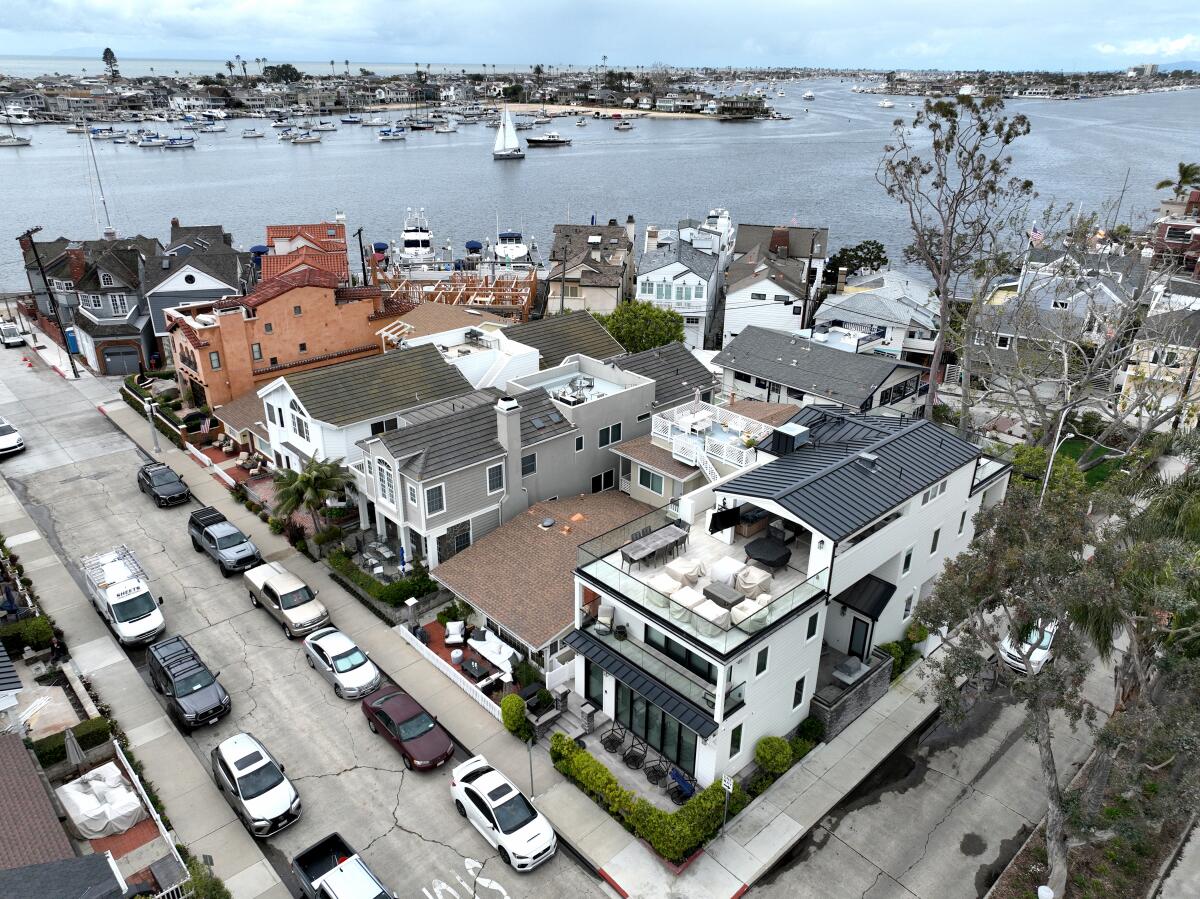Luxury home ownership in the United States represents a significant investment and comes with a distinct set of legal obligations and regulations. From property acquisition and construction to ongoing maintenance and compliance with local laws, owning a luxury home entails navigating a complex legal landscape. This comprehensive guide explores the key legal obligations and regulations that govern luxury home ownership in the USA, covering aspects such as property acquisition, zoning laws, building codes, environmental regulations, homeowner associations (HOAs), tax considerations, and more.
Understanding Luxury Home Ownership

Luxury homes in the USA are typically characterized by their high market value, premium amenities, and exclusive locations. They may range from sprawling estates and historic mansions to modern penthouses and waterfront villas. The legal framework surrounding luxury home ownership aims to protect property rights, ensure public safety, and regulate development in residential areas.
Legal Framework and Regulatory Authorities
- Local Government Jurisdictions: Cities, counties, and municipalities across the USA have the authority to enact zoning ordinances, building codes, and land use regulations that govern luxury home construction and development.
- State Regulations: State laws may impose additional requirements or restrictions on property transactions, environmental protections, and homeowner rights, which can vary significantly from state to state.
- Federal Laws: Certain federal laws and regulations, such as those related to environmental protection, historic preservation, fair housing, and tax codes, also impact luxury home ownership.
Key Legal Obligations for Luxury Home Owners in the USA
1. Property Acquisition
- Title Search and Transfer: Before purchasing a luxury home, buyers typically conduct a title search to verify ownership history and any existing liens or encumbrances on the property. Transferring property ownership involves executing a deed and recording it with the county or city clerk’s office.
- Escrow and Closing: The closing process includes reviewing and signing legal documents, paying closing costs and taxes, and transferring funds through an escrow account managed by a neutral third party.
2. Zoning Laws and Land Use Regulations
- Zoning Ordinances: Local zoning laws designate how land can be used (residential, commercial, industrial) and impose restrictions on building size, height, setbacks, and aesthetic considerations. Luxury homeowners must comply with these regulations to obtain building permits and avoid fines or legal disputes.
- Variances and Special Permits: In some cases, luxury homeowners may apply for variances or special permits to deviate from zoning requirements, which typically require public hearings and approval from local zoning boards.
3. Building Codes and Construction Standards
- Building Permits: Luxury home construction must adhere to state and local building codes that ensure structural integrity, safety, and compliance with fire, plumbing, electrical, and energy efficiency standards.
- Inspections: Building inspectors conduct periodic inspections during construction to verify compliance with approved plans and building codes. Final inspections are required before occupancy permits are issued.
4. Environmental Regulations
- Environmental Impact Assessments: Projects involving luxury home construction in environmentally sensitive areas may require assessments to identify potential impacts on wetlands, wildlife habitats, air quality, and water resources. Permits may be necessary to mitigate adverse effects.
- Waste Management: Luxury homeowners must comply with regulations for proper disposal of construction debris, hazardous materials, and wastewater to prevent environmental contamination.
5. Homeowner Associations (HOAs) Regulations
- Covenants, Conditions, and Restrictions (CC&Rs): Many luxury homes are governed by HOAs that establish rules and guidelines governing property use, architectural standards, landscaping, maintenance responsibilities, and community amenities.
- HOA Fees and Assessments: Owners are required to pay HOA fees to fund maintenance of common areas, insurance, and reserve funds for future repairs and improvements.
6. Tax Considerations
- Property Taxes: Luxury homeowners must pay property taxes based on the assessed value of their home. Rates and assessment methods vary by location and can impact overall ownership costs.
- Income Tax Implications: Renting out a luxury home for income or using it as a vacation rental may trigger additional tax obligations, such as rental income reporting and deductions for maintenance expenses.
Regulatory Compliance and Operational Considerations
1. Insurance Requirements
- Homeowners Insurance: Luxury homeowners are advised to obtain comprehensive homeowners insurance to protect against property damage, liability claims, and loss of personal belongings. Additional coverage may be necessary for high-value items, art collections, and special risks.
- Flood Insurance: Properties located in flood-prone areas may require flood insurance policies, which are often separate from standard homeowners insurance coverage.
2. Maintenance and Renovation
- Routine Maintenance: Luxury homeowners must maintain their properties in good condition to preserve value and comply with HOA rules and local regulations.
- Renovations and Remodeling: Major renovations or additions to luxury homes may require building permits, architectural reviews, and compliance with updated building codes and energy efficiency standards.
3. Security and Safety Measures
- Security Systems: Installing robust security systems and surveillance cameras may be necessary to protect luxury homes from intrusions and ensure the safety of occupants.
- Fire Safety: Compliance with fire safety codes, installation of smoke detectors, and maintaining fire extinguishers are essential to mitigate fire risks in luxury homes.
4. Respect for Neighbors and Community
- Noise and Nuisance Control: Luxury homeowners must be mindful of noise levels, outdoor activities, and guest behavior to avoid complaints from neighbors and potential legal disputes.
- Community Engagement: Participating in community activities and respecting local customs and traditions can foster positive relationships with neighbors and enhance the overall living experience.
Steps to Ensuring Compliance and Legal Requirements
- Legal Counsel: Consult with real estate attorneys, land use professionals, and tax advisors to navigate complex legal requirements and ensure compliance throughout the ownership process.
- Due Diligence: Conduct thorough due diligence before purchasing a luxury home, including inspections, title searches, and reviewing HOA documents and CC&Rs.
- Documentation and Record-Keeping: Maintain organized records of property transactions, permits, inspections, maintenance activities, and insurance policies to demonstrate compliance during audits or legal proceedings.
- Educational Resources: Stay informed about regulatory updates, zoning changes, and legal developments affecting luxury home ownership through industry publications, seminars, and professional associations.
Common Challenges and Considerations
1. Cost Management: Budgeting for property taxes, insurance premiums, HOA fees, maintenance costs, and potential legal expenses is crucial for managing the financial aspects of luxury home ownership.
2. Complexity of Regulations: Navigating local, state, and federal regulations, as well as HOA rules, can be challenging without professional guidance and expertise in real estate law and compliance.
3. Changing Regulatory Landscape: Stay proactive in monitoring regulatory changes, environmental policies, and zoning updates that may impact luxury home ownership rights and responsibilities.
4. Community Relations: Building positive relationships with neighbors, engaging in local initiatives, and respecting community standards contribute to a harmonious living environment and enhance property value.
Conclusion
Owning a luxury home in the USA involves navigating a multifaceted legal landscape governed by local, state, and federal regulations aimed at ensuring safety, environmental sustainability, and community well-being. By understanding and fulfilling legal obligations related to property acquisition, zoning laws, building codes, environmental regulations, HOA rules, tax considerations, and more, luxury homeowners can protect their investments and enjoy the benefits of upscale living. Continuous compliance, proactive management, and engagement with legal and regulatory professionals are essential for successfully navigating the complexities of luxury home ownership in the USA. With diligent planning and adherence to legal standards, luxury homeowners can uphold property values, preserve community harmony, and sustain a high quality of living in their exclusive residential environments.
